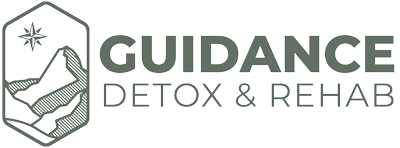When it comes to addiction treatment, many people often confuse detox and rehab. While both play crucial roles in the recovery process, understanding the key difference between them is vital for anyone seeking treatment for substance use disorders. Detox and rehabilitation address different aspects of addiction, and together they provide a comprehensive pathway to long-term sobriety.
This article will explain what both detox and rehab entail and how they work together in the recovery journey.
Understanding Detox
Detoxification, or detox, is the first step in the addiction treatment process. It involves the process of removing harmful substances, such as drugs or alcohol, from the body. Detox is particularly essential for individuals struggling with severe addiction or substance abuse, as it helps them safely manage withdrawal symptoms under professional medical supervision.
During detox, the body begins to rid itself of the addictive substance, allowing individuals to move forward in their recovery. This phase can last anywhere from a few days to a couple of weeks, depending on the severity of the addiction and the type of substance being abused. For example, individuals withdrawing from alcohol addiction or certain drugs may experience more intense symptoms of withdrawal, requiring medically supervised detox.
The primary goal of detox is to stabilize the patient physically. While detox does not address the underlying psychological factors of addiction, it plays a crucial role in ensuring that the individual is physically ready for the next phase of treatment, which is rehabilitation.
Detoxification is a crucial first step in recovery. At our luxury detox facility in Utah, we offer a comprehensive detox program that helps individuals manage withdrawal symptoms with constant medical support. We ensure you are physically stabilized and emotionally supported, laying the foundation for successful recovery.
The Role of Rehab in Addiction Treatment
Once the detox process is complete, rehabilitation begins. Unlike detox, which focuses on physical symptoms, rehab addresses the psychological, emotional, and behavioral aspects of addiction. Rehab programs can vary in length and structure, with two primary types: inpatient and outpatient treatment.
In inpatient rehab, individuals reside at a treatment facility for the duration of their program. This type of treatment is often recommended for those with severe addictions, as it provides a controlled environment where individuals are surrounded by medical professionals and can fully focus on their recovery. On the other hand, outpatient rehab allows individuals to live at home while attending scheduled treatment sessions at a treatment center.
In both settings, rehab typically includes individual counseling, group therapy, behavioral therapies such as cognitive-behavioral therapy (CBT), and strategies for relapse prevention. Group therapy plays a crucial role, enabling individuals to connect with others who are also in recovery, providing mutual support and understanding.
The goal of rehab is to help individuals address the psychological aspects of addiction, understand the root causes of their substance use, and build the tools needed for long-term sobriety. Rehabilitation is a vital step for anyone who wants to break the cycle of addiction and establish a foundation for sustained recovery.

Key Differences Between Detox and Rehab
Purpose
Detox is the initial step focused on the physical detoxification of the body, removing substances that have built up due to substance abuse. Its purpose is to manage the withdrawal symptoms and ensure the individual’s body can function without the influence of drugs or alcohol.
In contrast, rehab deals with the psychological and emotional aspects of addiction, providing the tools to heal and build a life free from drugs or alcohol.
Duration
Detox is typically a short-term process that lasts a few days or weeks, depending on the severity of withdrawal. Rehab, however, is often a longer-term commitment, with many individuals undergoing treatment for several weeks or even months. The duration of rehab programs depends on the type of treatment plan and the individual’s progress.
Scope of Treatment
While detox primarily focuses on managing physical withdrawal symptoms, rehab is broader in scope, addressing behavioral therapy, relapse prevention, and psychological counseling. Detox prepares the body for rehabilitation, but it is rehab that provides a comprehensive approach to addressing the underlying issues of addiction.
Cost Comparison
The cost of detox and drug rehab can vary greatly, as they serve different purposes and durations. Detox is often a shorter process, usually lasting a few days to a week, and can cost around $500 to $1,000 per day. Drug rehab, on the other hand, involves long-term care—typically spanning 30 to 90 days or more—which can make it significantly more expensive. Inpatient rehab programs can total tens of thousands of dollars due to housing, therapy, and ongoing support. However, many insurance plans and financial assistance programs can help offset these expenses for both detox and rehab.
Location
Detox is typically carried out in a detox center or hospital setting under medical supervision to ensure safety. Rehab, on the other hand, can take place in a variety of settings, including residential treatment centers (inpatient rehab) and outpatient treatment facilities, depending on the individual’s needs.
Medical Supervision
Detox requires medical supervision due to the risk of severe withdrawal symptoms, especially in individuals who have been using drugs or alcohol for long periods.
Rehab, while it may still involve medical professionals, primarily focuses on therapy and counseling to help the individual understand their addiction and work towards recovery.
Treatment Goals
The goal of detox is to rid the body of harmful substances, stabilize the individual, and manage withdrawal symptoms. Rehab, on the other hand, aims to help the individual overcome the psychological dependence on drugs or alcohol, understand the triggers that lead to addiction, and provide the skills necessary to maintain sobriety in the long term.
Type of Care
Detox focuses primarily on physical care, the removal of drugs and alcohol from the body, while rehab provides psychological care through therapies, individual counseling, and group support.
The Importance of Both Detox and Rehab in Overcoming Addiction
It’s important to note that detox and rehab are not interchangeable phases, as both are necessary for long-term recovery. Detox alone does not address the underlying psychological issues that contribute to addiction, and rehab without detox can be challenging for individuals who are still suffering from intense withdrawal symptoms. The most effective treatment programs combine both stages, ensuring that individuals receive comprehensive care that addresses all aspects of addiction, both the physical and emotional.
Choosing the Right Detox and Rehab Center
When selecting a detox center or rehab center, it’s important to choose a facility that offers personalized care. Look for treatment centers with professional addiction treatment staff and medical supervision during detox, and those that provide a structured and supportive environment for rehab. Whether you opt for inpatient rehab or outpatient treatment, ensure that the center offers programs that cater to your specific needs and provide a solid foundation for long-term sobriety.
Final Thoughts from Guidance Detox and Rehab
At Guidance Detox and Rehab, we recognize that both rehab and detox are crucial for achieving a successful recovery. Our comprehensive medical detox program safely guides individuals through withdrawal, while our inpatient rehab program addresses the emotional and psychological aspects of addiction. With a luxury, high-end setting and compassionate, expert-driven care, we provide a holistic approach to recovery that promotes long-term sobriety and healing.
